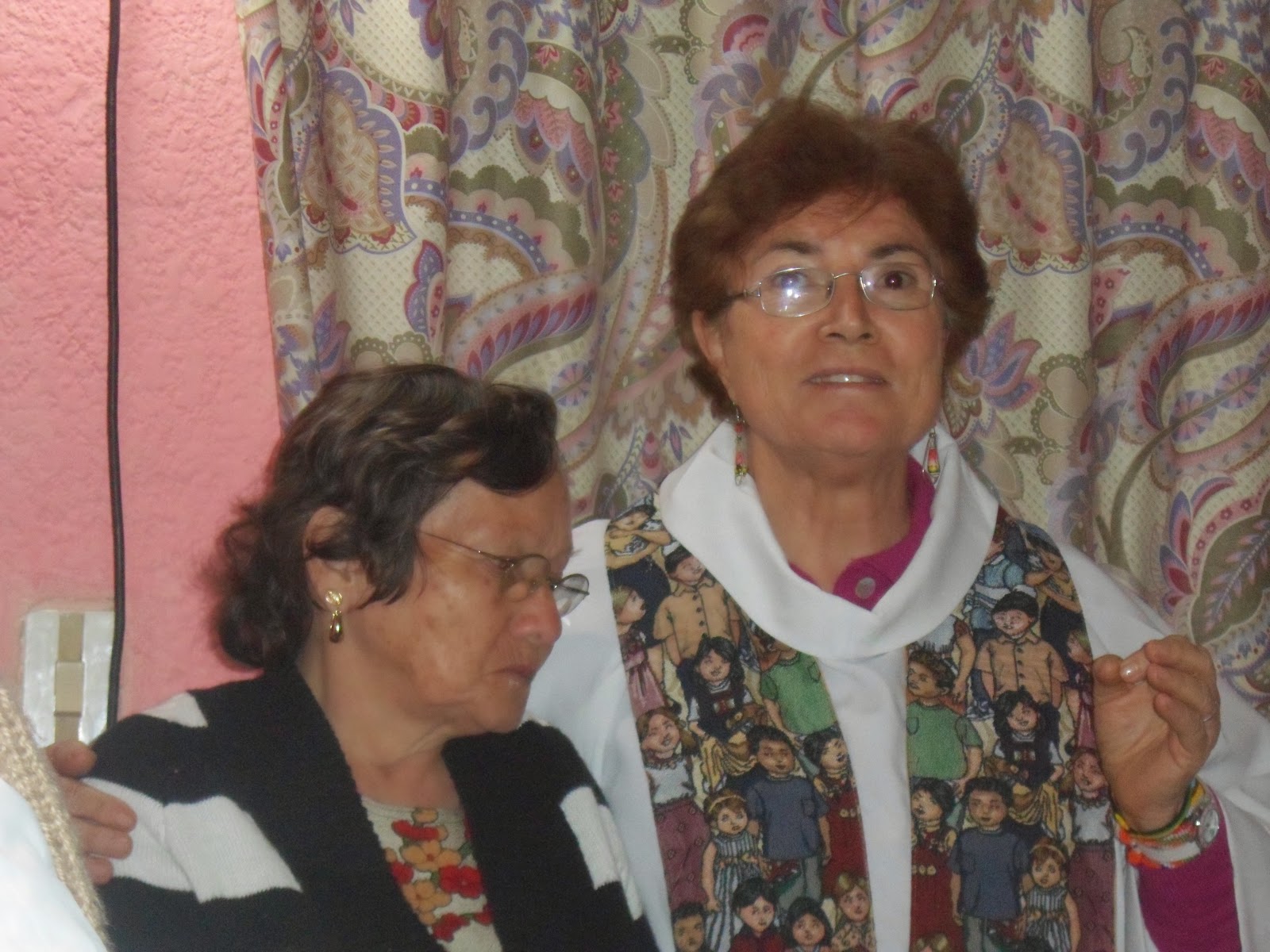"Facing this woman, so vital and enthusiastic than no one
would say she has been alive 70 years, and nowadays surrounded by scandal for
being a priestess, Bishop Gerardo Valencia
would not be outraged.
Olga Lucia has
evoked the memory of her teacher in answering my first question, the type of
question you ask just to break the ice:
- What do I call you, Olga Lucia, Reverend Mother,
Priestess? What do I call you?
- The people in the community call me by my name, including
the children. Those who do not know me say Reverend, or Mother. This I learned
from a friend who cared for you very much: Gerardo Valencia Cano.
 |
| Olga Lucia Alvarez, first woman priest in Colombia, South America |
Indeed, the Bishop of Buenaventura, who died in a plane
crash, would assume the fact of Olga Lucia’s ordination by Bishop Bridget Mary
in early 2010 with the same bold spirit with which he agreed to serve as
support for the priests in Golconda, a group which surprised and exasperated
the hierarchy with their groundbreaking political and social proposals in the
early 70s. Olga Lucia was his pupil in the Union of Secular Missions that he
founded. It was the spiritual home of the young saleswoman from Tejicondor when
she decided to take her life in a radically different direction. Later she
became the secretary in an office she remembers as liberation theology, a place
that saw the first flow of the early concerns about this form of thought within
the Church. This is why, after an intense apostolic activity, when she first
heard of the existence of the global network of Catholic priestesses, who
already had ordained 230 women, she felt she had found what she had always
sought.
"Was it necessary to institute female priesthood in the
Catholic Church?" I ask, echoing the views of those sectors who reject
priestesses as unnecessary and contrary to ecclesiastical discipline and
tradition:
-the Institution of female priesthood has always been in the
Catholic Church. The fact that the Church does not want to recognize it
institutionally is something else. In Jesus'
ministry there was no lack of women, they helped him with their own financial
resources (Luke 8: 1-3). They tried to have Paul appear as a misogynist, but this is not true, as he is the one
who mentions women most and he recognizes the ministerial work they did in the
service, growth and strengthening of the Kingdom of God.
During the Vatican II years a doctor in theology, Miss
Munch, submitted a formal request to be ordained a priest before the
ecclesiastical authorities in Rome. While no answer was ever provided, she put
the issue on the agenda of what could be discussed. Maybe that is one of the
facts in the history of the global network of priestesses with which Olga Lucia
made contact in 2008 through the internet.
But her access to the priesthood through the Global Network
of priestesses had its own process.
As she recalls, she had to prove her apostolic experience
and her religious and theological training, the consent of her family,
references from people who knew her, her criminal record and medical
certificates concerning her physical and mental health. Among all these
certifications she had to include the history of her passage through the
Anglican Church and her adventures with the missionaries of Monsignor Valencia
Cano.
Now she celebrates the Eucharist in the many places that
invite her, surrounded by people who know her and who believe in her pastoral practice,
but she cannot avoid being followed by some who exhibit curiosity, amazement
and, in some cases, hostility. She is living the loneliness and the resistance
of all pioneers.
Those who comment on Olga Lucia tend to think that it is not
yet time for priestesses and that their presence on an altar is traumatic,
breaks the mold and seems to violate a long tradition, is that true?
- It is not people who do not accept the figure of female
priesthood. It is the institutional church.
- One hears it said through the grapevine that "female
priesthood has been a failure, and that the churches have not grown,"
commenting on the experience in other churches. The priesthood is about service,
in and for the Kingdom of God, in the proclamation of the Good News, and not to
grow churches. "
- My experience in the ministry is and has been totally
different and very enriching. It is the community that asks for my services and
my accompaniment, both spiritual and pastoral.
I see her as someone who inaugurates the future and who pays
the price for doing it too early."
Translated from Spanish by Silvia Brandon-Perez
No comments:
Post a Comment